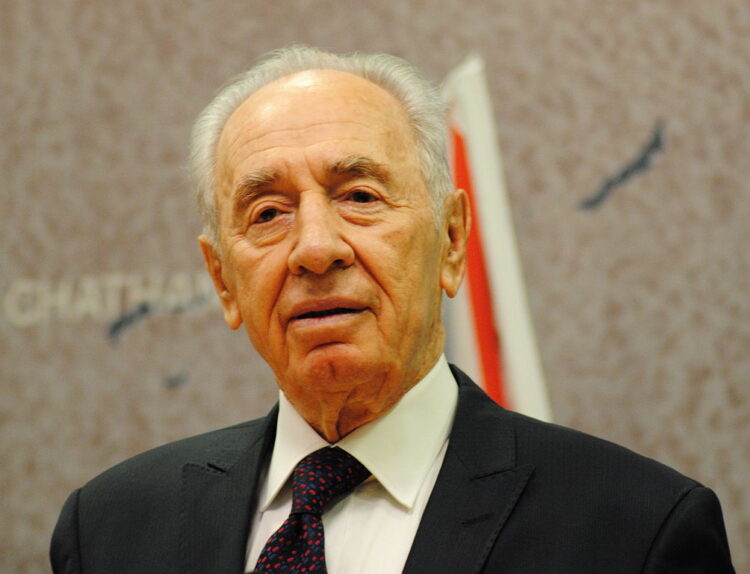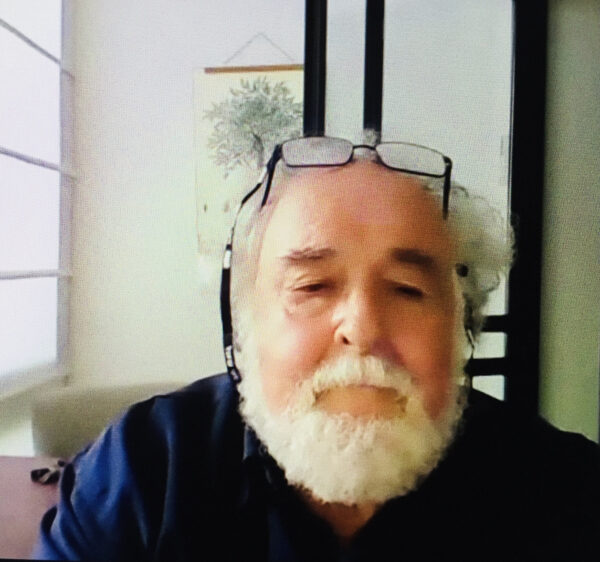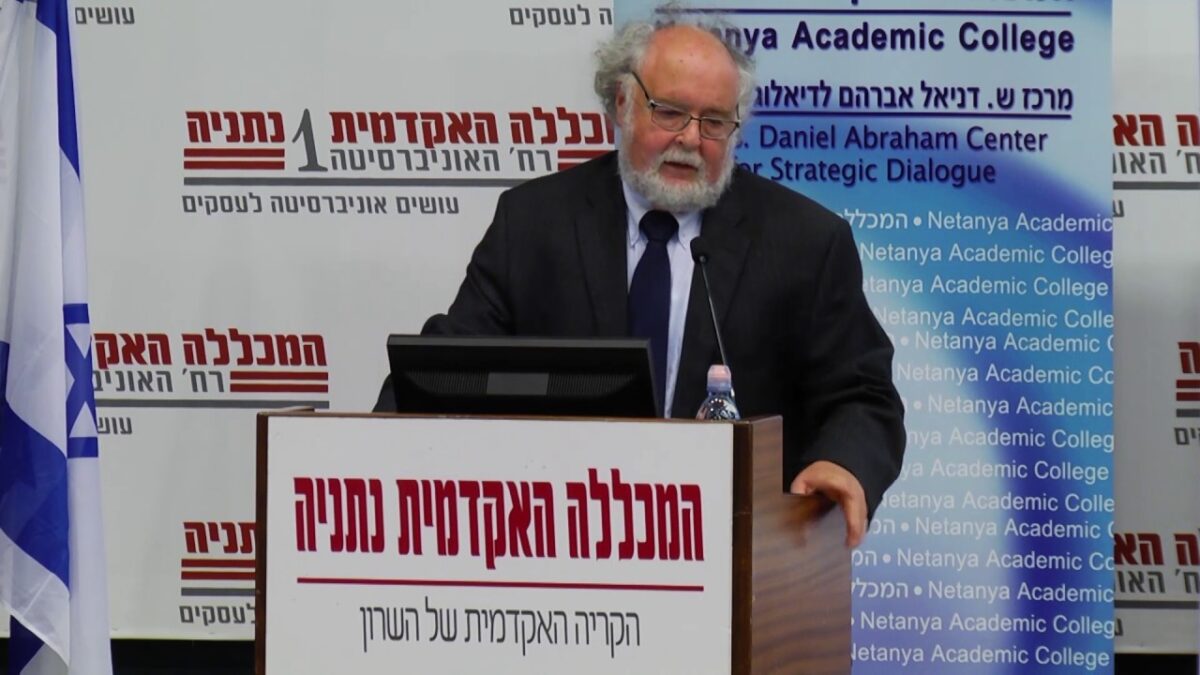The explosive Palestinian problem should be addressed by the international community so that the Palestinians achieve statehood and Israel attains security and legitimacy from its Arab neighbors, says Yair Hirschfeld, one of the architects of the Oslo peace process.
Only a gradual approach to this complex issue will work, he told a Canadian Friends of Peace Now webinar on May 16.
As he spoke, he could hear the roar of Israeli Air Force combat jets, which have borne the brunt of Israel’s current military campaign against Hamas in the Gaza Strip.
A professor of Middle Eastern history, Hirschfeld is the academic director of the Daniel Abrams Center for Strategic Dialogue at Netanya College.
A longtime proponent of the two-state solution, which the government of Prime Minister Benjamin Netanyahu opposes, Hirschfeld was one of the key figures in laying the groundwork for Israel’s negotiations with the PLO in the early 1990s.
The PLO, acclaimed as the “sole, legitimate representative” of the Palestinian people at an Arab League summit in Rabat in 1974, was scorned and shunned by Israel until the Oslo era.
In his capacity as a facilitator, Hirschfeld set up secret meetings in Norway between PLO leaders and two key members of Prime Minister Yitzhak Rabin’s government — Shimon Peres, the foreign minister, and his deputy, Yossi Beilin.

Hirschfeld also participated in unofficial talks with the PLO. Hirschfeld was then appointed a member of the official Israeli negotiating team.
Oslo was dealt a grievous blow when the second Palestinian uprising erupted in September 2000. It has yet to recover from this setback.
Ever since then, Hirschfeld has promoted the two-state solution and maintained ties with the Palestinian leadership, headed by Palestine Authority President Mahmoud Abbas.
If there is to be a two-state solution, he said, the Palestinian question must be prioritized by the Israeli government, and pro-peace forces in Israel must reach out to pragmatic right-wing politicians and Jewish settlers in the West Bank so as to marginalize extremists like Itamar Ben-Gvir of the Religious Zionist Party.
Hirschfeld acknowledged that the Israeli left, for all intents and purposes, is “non-existent” today.
On the Palestinian side, he added, there must be a functioning Palestinian government if peace talks are to succeed.
Dismissing the “myth” that Israel lacks a Palestinian negotiating “partner,” Hirschfeld said that a Palestinian state can be created in about 90 percent of the West Bank and in Gaza. Mutual land swaps could be part of a peace agreement, and isolated Israeli settlements could be moved into existing settlement blocs close to Israel’s border, he said.
He did not mention the role that Hamas could play in this kind of a diplomatic process.

No Israeli government would accept the 2002 Arab League peace proposal, which was updated in 2007, he said. It calls for a full Israeli withdrawal from the occupied territories and a mutually acceptable resolution of the Palestinian refugee problem in exchange for normalization with the Arab world.
Netanyahu’s policy of conflict management with the Palestinians has proven to be unsustainable in light of the latest border war in Gaza, he noted.
During a question-and-answer session, Hirschfeld dismissed the concept of a “three-state solution” as a “non-starter.” This would entail the establishment of separate Palestinian states in the West Bank and Gaza coexisting with Israel.
A confederation, consisting of Israel and a Palestinian state, is a possibility, he said.
